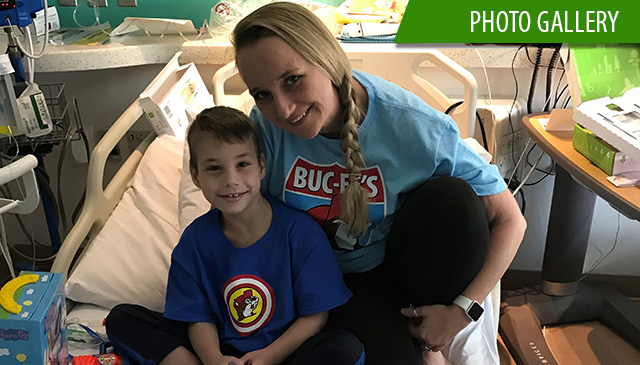 From the time Colton Makow was born, he faced an uphill battle. He spent his first 61 days of life in Texas Children’s Hospital’s Neonatal Intensive Care Unit, and while there, was told by doctors that his kidneys were damaged from lack of oxygen and that he one day would need a transplant.
From the time Colton Makow was born, he faced an uphill battle. He spent his first 61 days of life in Texas Children’s Hospital’s Neonatal Intensive Care Unit, and while there, was told by doctors that his kidneys were damaged from lack of oxygen and that he one day would need a transplant.
Devastated by the news, Colton’s mother, Julie Makow, knew she would do everything she could to save her son, including giving him one of her kidneys if that’s what it took to keep him alive.
“I always thought, if given the chance, that’s going to be the one thing I can do to make it better,” Julie said. “I knew I was going to be a part of that, and that I would be the first one tested to be a match.”
Julie got her chance to see if she was a viable donor candidate when doctors told her and Colton, then 6 years old, that it was time to make a move toward getting a kidney transplant. After the test, Julie was told she was a perfect match and that she could donate one of her kidneys to her son.
In February, Dr. Christine O’Mahony, surgical director of kidney transplantation at Texas Children’s Hospital, performed the surgery. Texas Children’s performs about 30 kidney transplants a year. When the organ comes from a living donor, it typically lasts longer. For Colton, that means hopefully it will be a long time before he needs another transplant.
“He’ll have to go see the physicians a lot more frequently than he would if he were another kid, he’ll have to get labs, but his life will otherwise be the same,” O’Mahony said. “He can play sports, go to school and be just like everybody else.”
Kirti Bhakta, the transplant coordinator who worked with Colton and Julie, said she has witnessed the selfless sacrifices parents make for their children time and time again.
“It is truly heartwarming,” she said. “So many of our parents will do anything to give their children a better chance at a good life. Their actions are the epitome of unconditional love.”
Dr. Sarah Swartz, medical director of dialysis for Texas Children’s Hospital, also worked with Colton and Julie and said their story is perfect for Mother’s Day.
“Colton now has the chance to live a better life, thanks to his mom,” Swartz said. “What a beautiful reminder to him and others the power of a mother’s love as well as the difference an organ donor can make in someone’s life.”
Click here to learn more about how to become an organ donor and here to read a story by KHOU11 about the Makows.


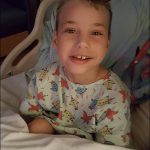
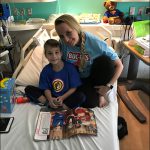

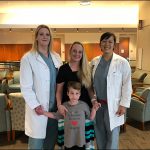
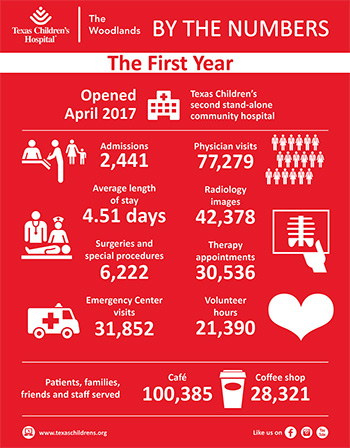
 From our three hospital campuses to our health centers, urgent care and pediatric practices, Texas Children’s continues to focus its efforts on enhancing patient access. Since implementing solutions for the first two waves of specialties over the last two months, patient families are noticing a positive difference.
From our three hospital campuses to our health centers, urgent care and pediatric practices, Texas Children’s continues to focus its efforts on enhancing patient access. Since implementing solutions for the first two waves of specialties over the last two months, patient families are noticing a positive difference.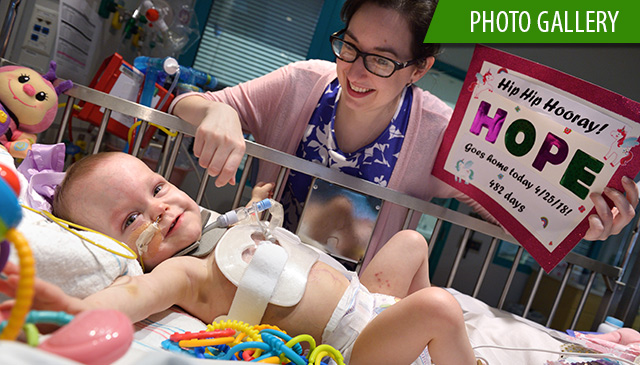 Hope Elizabeth Richards, one of the formerly conjoined twin girls separated at Texas Children’s earlier this year, was discharged April 25 after spending 482 days in the hospital. Hope joined her sister, Anna Grace, who was discharged on March 2.
Hope Elizabeth Richards, one of the formerly conjoined twin girls separated at Texas Children’s earlier this year, was discharged April 25 after spending 482 days in the hospital. Hope joined her sister, Anna Grace, who was discharged on March 2.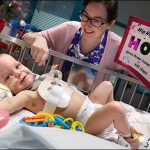
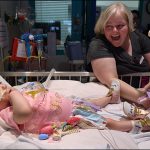
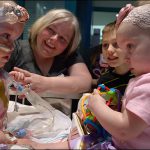
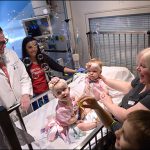
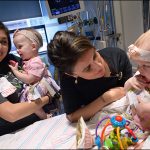
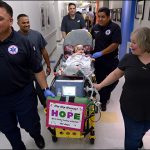
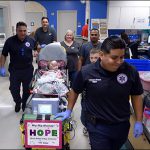
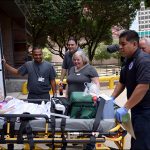








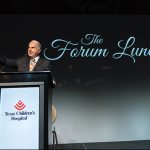
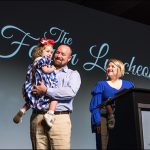


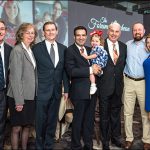

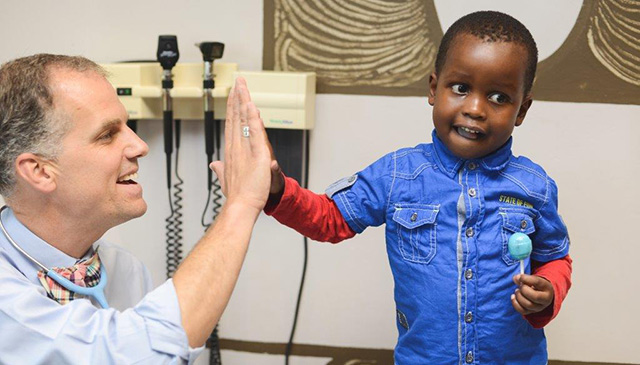 Just 12 short months ago, Texas Children’s Cancer and Hematology Centers, Baylor College of Medicine International Pediatric AIDS Initiative at Texas Children’s Hospital, the Bristol-Myers Squibb Foundation, and leaders in Botswana, Uganda and Malawi, announced a $100 million initiative to create an innovative pediatric hematology-oncology treatment network in sub-Saharan Africa.
Just 12 short months ago, Texas Children’s Cancer and Hematology Centers, Baylor College of Medicine International Pediatric AIDS Initiative at Texas Children’s Hospital, the Bristol-Myers Squibb Foundation, and leaders in Botswana, Uganda and Malawi, announced a $100 million initiative to create an innovative pediatric hematology-oncology treatment network in sub-Saharan Africa.